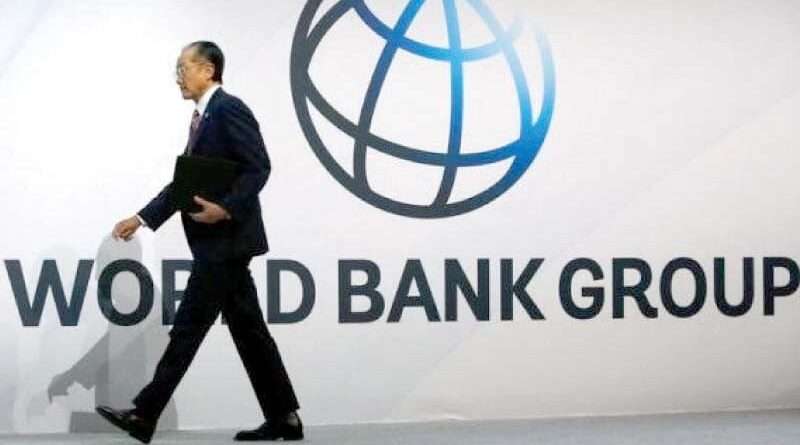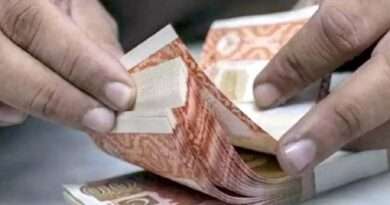Transfer DISCOs in Name of President: World Bank
|
Getting your Trinity Audio player ready...
|
The World Bank has proposed a significant shift in the ownership structure of Pakistan’s power distribution companies (DISCOs). The recommendation suggests transferring the ownership of these companies to the president of Pakistan before their auction. This move is part of the government’s strategy to privatize the sector, which continues to be a financial burden on the national exchequer.
Background
The proposal was discussed during a briefing to the Senate Standing Committee on Privatization, led by PML-N Senator Tallal Badar Chaudhry. The committee’s discussions revealed the complexities involved in privatizing the DISCOs, a process considered more challenging than the privatization of Pakistan International Airlines (PIA).
World Bank’s Recommendations
Transfer of Ownership
The World Bank has set forth nine prior actions necessary for the successful privatization of the DISCOs. One of the primary recommendations is the transfer of ownership of these companies to the president of Pakistan. This step is seen as a precursor to their eventual auction.
Addressing Legacy Issues
Abdul Aleem Khan, Federal Minister for Privatization, emphasized the need to address legacy issues before the DISCOs can be privatized. These include financial and operational challenges that have plagued the sector for years.
Detailed Conditions
The World Bank’s conditions for privatization include:
- Notification of License Eligibility Criteria Rules: Establishing clear rules for eligibility.
- Modification of Tariff Rules: Ensuring uniform tariffs across the country, despite the privatization.
- Clarification of Subsidies: The government needs to clarify subsidy guidelines for Nepra (National Electric Power Regulatory Authority).
- Balance Sheet Cleanup: Erasing doubtful entries from the DISCOs’ balance sheets.
- Issuance of Shares: Completing the issuance and developing processes for future share issuance.
- New Electricity Policy: Defining roles and responsibilities to reduce technical and commercial losses.
- Recognition of Off-Balance Sheet Liabilities: Ensuring these are acknowledged as per financial and corporate reporting requirements.
Progress and Challenges
As of now, only two of the nine conditions have been fully met. The government is working towards meeting the remaining conditions by January next year. Without the complete report from the World Bank, the privatization process cannot effectively commence.
Government’s Privatization Strategy
Uniform Tariff Policy
Despite the privatization, the government has committed to maintaining uniform electricity prices across the country. This policy means that consumers in areas with high line losses, such as Hyderabad, will pay the same tariffs as those in more efficient regions like Faisalabad or Islamabad. Consequently, consumers in Punjab will continue subsidizing those in Balochistan and Sindh.
Continuation of Subsidies
Subsidies will continue for consumers of privatized companies, indicating an ongoing burden on the national budget. The government must provide clear guidelines on how DISCOs can request and recover these subsidies.
Hiring Financial Advisers
By the end of November, financial advisers for the first three DISCOs will be hired. These advisers will evaluate whether to privatize the profitable companies in one go or gradually. The cabinet has already approved the outright sale of Islamabad Electric Supply Company, Faisalabad Electric Supply Company, and Gujranwala Electric Power Company in the first phase.
Phased Privatization
The privatization will occur in two phases:
- First Phase: Involves the sale of three profitable companies.
- Second Phase: Includes three loss-making entities—Lahore Electric Supply Company, Multan Electric Power Company, and Hazara Electric Supply Company. The highest loss-making companies—Hyderabad Electric Supply Company, Sukkur Electric Power Company, and Peshawar Electric Supply Company—will follow a concession model through long-term agreements.
Strategic Approach
Senator Nadeem Ahmad Bhutto suggested a strategic approach, recommending the sale of a combination of one profitable and one loss-making company. This strategy aims to balance the interests of potential investors and the financial viability of the sector.
ALSO READ:
https://skipper.pk/2024/11/18/ufone-upower-280-stay-connected-and-empowered-for-a-week/
Conclusion
The World Bank’s proposal to transfer the ownership of DISCOs to the president of Pakistan is a crucial step in the government’s broader strategy to privatize the power sector. While significant challenges remain, the outlined conditions and phased approach offer a structured path towards achieving this goal. The continuation of subsidies and uniform tariff policies reflects the government’s commitment to balancing privatization with social equity.
FAQs
1. Why is the ownership of DISCOs being transferred to the president of Pakistan?
The World Bank recommended this transfer as a precursor to auctioning the DISCOs, ensuring a centralized and streamlined ownership structure before privatization.
2. What are the main challenges in privatizing DISCOs?
Challenges include addressing legacy financial and operational issues, ensuring uniform tariffs, and maintaining subsidies for consumers.
3. How will the uniform tariff policy affect consumers?
Consumers in more efficient regions will subsidize those in areas with higher line losses, maintaining uniform electricity prices across the country.
4. What is the phased approach to privatization?
The first phase involves selling three profitable companies, while the second phase includes three loss-making entities and three high-loss companies through long-term agreements.
5. Will subsidies continue after privatization?
Yes, subsidies will continue for consumers of privatized companies, reflecting an ongoing budgetary burden.




